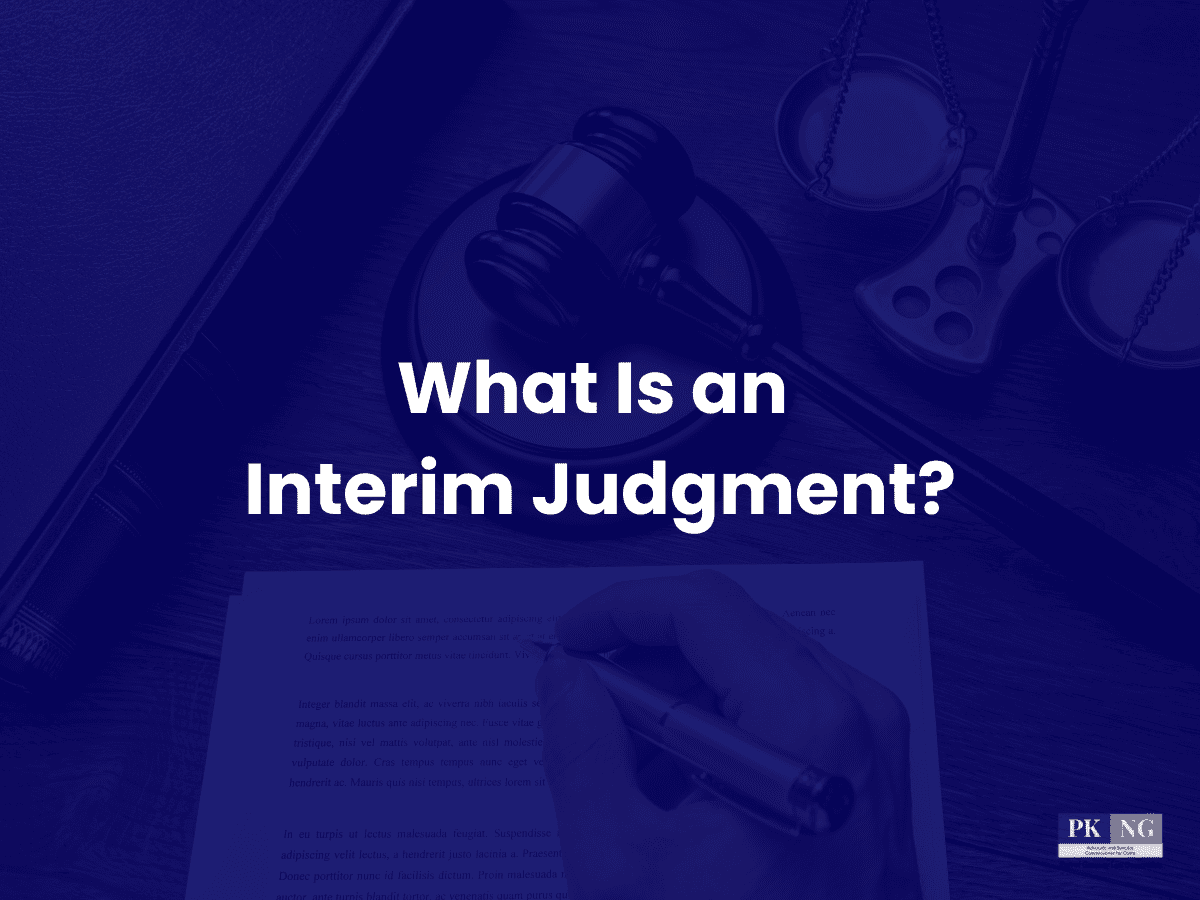
What Happens After You File for Divorce in Singapore
Filing for divorce is never easy, but many are surprised to learn that getting the certificate of divorce (the legal term is “Final Judgment”) is not instantaneous. ⚖️
In Singapore, once the Court declares that the marriage is terminated by divorce, the Court first issues an Interim Judgment—not a Final Judgment.
This can be confusing for those expecting a quick end to the divorce. So, what is an Interim Judgment, and what happens during this “in-between” stage?
Understanding this step is essential, especially if you are concerned about dealing with related matters such as children custody, maintenance, or property division. You may also want to know when exactly your marital status changes from being “married” to being “divorced”. Once the Final Judgment is issued, each party is free to remarry.
What Is an Interim Judgment?
An Interim Judgment is a provisional court order stating that the marriage has irretrievably broken down and is to be dissolved. It is issued once the court is satisfied with the grounds for divorce.
However, the divorce is not legally finalised yet. The law provides a mandatory 3-month waiting period before a Final Judgment (also known as Certificate of Final Judgment) can be granted. The 3-month wait acts as a “cooling off” period in that it allows both parties to consider whether there is any possibility of marriage reconciliation.
During this interim period, the parties may start discussing and negotiating to resolve any disputes relating to children custody, maintenance (financial support for children or former spouse), and/or division of matrimonial assets.
If these divorce – related issues (legal term is “ancillary issues”) cannot be resolved within the 3-month period, the Final Judgment WILL NOT be issued. Under Singapore law, the Final Judgment can only be issued AFTER all the ancillary issues are resolved – whether it is by a recorded settlement or by a Court judgment.
What to Expect During the Interim Period
Once the Interim Judgment is granted, it is normal to feel unsure about what comes next. Here’s what typically happens during this waiting period:
- You cannot remarry yet: The divorce is not finalised until the Final Judgment is issued. Meaning, if you have not received the Final Judgment, your marital status is still considered “married”. So, if you go ahead to remarry before the Final Judgment is issued, you are committing bigamy – a serious criminal offence. Do note that this is not allowed even if the second marriage is outside Singapore.
- You should try to resolve the ancillary issues during this interim period: These issues include division of assets, spousal maintenance, and child arrangements. If you manage to resolve only some of the ancillary issues within this time, you can get the lawyer to help you record a partial settlement order. In this way, you only need to instruct your lawyer to litigate on outstanding ancillary issues, saving you some monies on legal fees.
- Legal representation matters more than ever: Having an experienced divorce lawyer to advise you and guide you through the divorce process, will help you to have a fairer and more efficient resolution of the ancillary issues.
- After the 3 month is up and you have settled your ancillary issues, you will still need to apply for the Final Judgment to be issued: It is not automatic — you need to take this step to conclude the divorce proceedings.
Legal Advice Helps Navigate the Interim Phase
Many couples assume the divorce is complete once the Interim Judgment is granted—but key matters still need to be resolved.
Getting timely legal advice ensures:
- You know your rights and obligations during this interim period
- The correct legal documents are properly filed before the Final Judgment is issued
- Children custody, maintenance, and property division issues are resolved professionally and smoothly.
How Pui Khim Can Help with Divorce Judgments
At Gateway Law, Pui Khim regularly guides clients through every step of the divorce process—including navigating the Interim Judgment phase.
She offers practical, clear legal advice to help clients resolve outstanding issues, whether through negotiation, mediation, or court litigation. If you have just received an Interim Judgment and are not sure what to do next, Pui Khim can provide professional and experienced legal support to help you move forward.
FAQs – Important Things You Need to Know About Interim Judgment
Is an Interim Judgment the same as a divorce?
Not quite. It means the Court has agreed the marriage should end, but it is not final until a Final Judgment is issued.
What happens during the 3-month interim period?
This mandatory period allows both parties to consider whether there is any possibility of reconciliation. If only one party wants to reconcile but the other party does not, the Court will still issue the Final Judgment after the end of 3 months (provided that all ancillary issues are resolved by then).
Can I remarry after getting an Interim Judgment?
No. You can only remarry after receiving the Final Judgment.
What if the ancillary issues are not resolved in 3 months?
The Final Judgment will be held back by the Court, until all outstanding ancillary issues are fully resolved.
Can Pui Khim help during this stage?
Yes. Pui Khim seeks to help clients resolve ancillary issues fairly and efficiently, so that their divorce can be finalised without unnecessary delay.

PKNG is helmed by Ng Pui Khim. An experienced divorce & family lawyer in Singapore, Pui Khim is practicing as a director under Gateway Law Corporation.
All rights reserved. Any information of a legal nature in this website is given in good faith and has been derived from resources believed to be reliable and accurate. The author of the information contained herein this website does not give any warranty or accept any responsibility arising in any way, including by reason of negligence for any errors or omissions herein. Readers should seek independent legal advice
